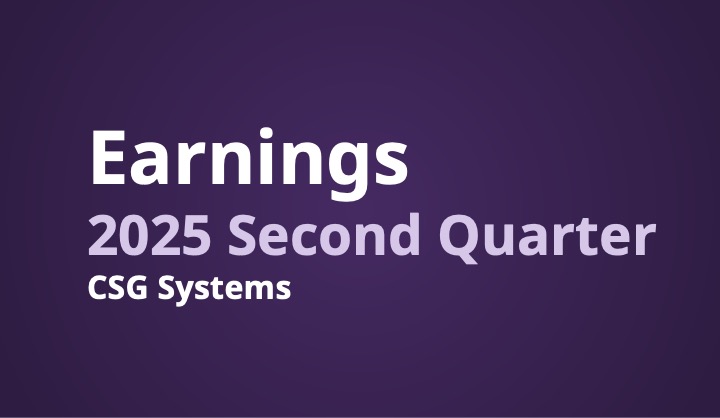As telcos push for new ways to expand their revenues, their B2B service offerings will only grow more complex. A configure, price, quote (CPQ) system can improve efficiency by automating manual processes, but many solutions fall short of effectively handling the telco industry’s needs if they aren’t purpose-built to manage the intricacies. On the other hand, the right CPQ can be a powerful revenue driver for communications service providers (CSPs).
To help telcos answer the question of whether their CPQ system is more of a help or a hindrance to business growth, industry experts joined a panel discussion to unpack the limitations of generic solutions and what to look for in a CPQ. The webinar, which included a look at exclusive data from Appledore Research, featured insights from:
- John Abraham, principal analyst, Appledore Research
- Richard Bateman, head of IT product delivery, EonFibre
- Greg Tilton, vice president of product line, CSG
The panelists described four ways a telco-specific CPQ can drive more revenue for CSPs. Read on to understand the business benefits of bringing in the right solution.
4 Ways a Telco-Specific CPQ System Leads to More Revenue for CSPs
1. Limits revenue leakage
Customer orders aren’t static. Changes frequently occur right up to the point of fulfillment, and if a CPQ system lacks the flexibility to adjust in-flight orders accurately, it can have a harmful commercial impact on telcos.
To prevent revenue leakage, bring in a purpose-built CPQ system that supports the decomposition of complex orders and maintains meticulous tracking throughout the entire quote-to-cash process. This ensures that any modifications are correctly reflected in pricing and service delivery, preventing discrepancies and revenue loss that can easily arise when relying on less adaptable, generic systems.
By maintaining control and visibility over order changes every step of the way, a telco-specific CPQ safeguards revenue and promotes profitability.
2. Minimizes missed opportunities
When systems operate in silos and fail to communicate effectively, telcos can inadvertently overlook profitable deals or misprice complex solutions. It’s no small concern: nearly half of CSPs cited qualification inaccuracies as a priority issue that needs immediate attention in one survey by Appledore Research. An industry-specific CPQ helps stop the gaps by offering a holistic view of margins across all components of a deal.
The ability to configure and quote entire solutions (rather than just individual products) is crucial when evaluating profitability. CSPs need a CPQ that can seamlessly combine diverse offerings into a single, comprehensive quote and capably manage the subsequent delivery process. Doing so not only streamlines the sales cycle but also ensures that all potential revenue streams within a customer engagement are captured. Greater margin visibility means more revenue for telcos.
3. Keeps quotes competitive
Customers expect near-immediate responses, with a quote delivery window ideally falling within 48 hours. Yet, for over 50% of CSPs, it takes more than three days to respond to customers with a quote. This is money left on the table.
“After two to three days, you start to experience a notable loss rate from not getting it out the door quickly enough,” CSG’s Greg Tilton approximated.
To compress quote turnaround times, an industry-specific CPQ plays an instrumental role. When tailored to meet the complexities of telco offerings, the right system can significantly reduce the time required to reliably generate comprehensive quotes. This efficiency directly translates to a higher likelihood of winning business, as CSPs can meet pressing deadlines without sacrificing accuracy. By accelerating the quoting process, telco-specific CPQs empower telcos to be more responsive and, ultimately, more competitive.
4. Commit to customers with confidence
A telco-specific CPQ empowers CSPs to commit to customers with greater confidence by providing a clear understanding of their current capabilities and automating key processes with precision. “What [a telco-specific CPQ] gives us and what it gives our customers is certainty,” said Richard Bateman of EonFibre.
Unlike manual quoting processes, which can lead to billing discrepancies due to lost information, inconsistencies and a lack of structure, an automated CPQ system hands CSPs clear and accurate data. This efficiency allows telcos to confidently respond to quotes with either a firm “yes” or an estimated time of arrival for more complex requests.
Better yet, when a CPQ offers real-time visibility into the various cost elements of a deal, such transparency proves invaluable in quickly securing approvals. The end benefit of a purpose-built CPQ for telcos is not only improved customer loyalty and satisfaction, but also the assurance of bigger margins through trustworthy and error-free pricing.
Revolutionize Telecom with CPQ for CSPs
While generic CPQ solutions may offer enough basic functionality to supplant manual processes, CSPs looking for a true competitive edge need a telco-specific CPQ system. Tailored solutions address the unique challenges of the industry—from managing intricate bundles to providing pricing transparency—and equip telcos with the tools they need to confidently make business decisions that minimize revenue leakage.
To delve deeper into common CPQ challenges faced by telcos and hear research-backed recommendations from industry experts on how to overcome them, catch the latest Tech Talk with CSG, “Revolutionize Telecom with CPQ for CSPs.”
Want to learn more about how your organization can maximize revenue potential with the right CPQ system?











